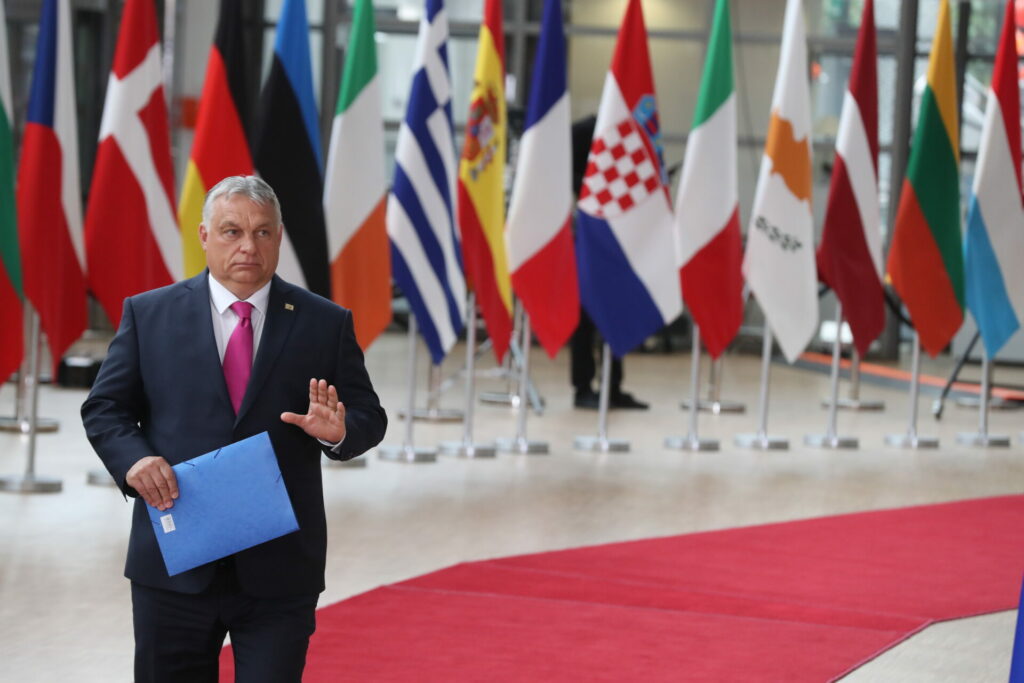EU lawmakers will vote on Thursday on a draft text which declares that Hungary is not a full democracy, as democracy and fundamental rights in the country have deteriorated. Hungary's Viktor Orban has also recently clashed with the EU over sanctioning Russia, which has impacted the EU's decision-making abilities.
There has been a "constitutional coup" during Orban's regime, according to MEP Gwendoline Delbos-Corfield (Greens/EFA, FR), lead negotiator of the report.
She stressed at a press conference on Wednesday that there was "less power for (Hungary's) parliament", and that Covid-19 had strengthened the Hungarian government's emergency powers, all while the justice system had been under attack long before the report.
EU institutions have dithered on how to address Hungary's democratic backsliding. The Rule of Law conditionality mechanism that would allow the EU to financially sanction the country entered into force in January 2021, but the Commission has failed to implement it. Both Hungary and Poland had threatened to veto the EU's seven-year financial package to remove the conditionality regulation.
Related News
- Final report on Hungary: This is how elections in an illiberal EU country look like
- US condemns racist comments by Hungary's Orban
- Hungary wants to abolish directly elected European Parliament
In 2018, the Parliament triggered the Article 7 procedure in the Treaties that can be used if a country breaches EU values such as the rule of law. It includes two mechanisms: Preventative measures, if there is a risk of a breach, and sanctions if the breach has already occurred. These sanctions can include suspending voting rights in the Council.
The parliament's report is a follow-up report from 2017 that details Hungary's worsening democratic conditions. If adopted, it would then be down to Council to vote on sanctions.
A problem for EU unity
Five out of the seven groups in the parliament agreed to define Hungary as an 'electoral autocracy' – meaning that it is no longer a democracy, according to Delbos-Corfield. The MEP also claims that there are problems ahead in the Council as "what is voted in Council should be voted on by clear democratic members" and that a vote cannot "be persistent with a non-democratic state."
It is absurd that "they (Hungary) take EU money when they don't believe in the EU's institutions and values" said Romanian MEP Ramona Strugariu, Renew's shadow negotiator on the report. Strugariu stressed that for Renew, smart sanctioning was key so that the people of Hungary don't suffer from the actions of their government.
Asked about Hungary's future, the MEPs refused to speculate but stressed they would do what is possible under the remit of EU law. The EU lawmakers underlined their support for the people of Hungary, adding that they would suffer if Hungary were to leave the EU.
However, they stressed that they were at the end of Parliament's remit. Austrian MEP Bettina Vollath (S&D) called for the Commission to follow up on infringement procedures against Hungary, stressing that if another report has to be created in 5 years "we will not have a functioning union."

